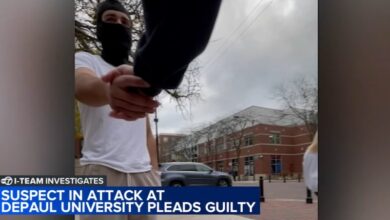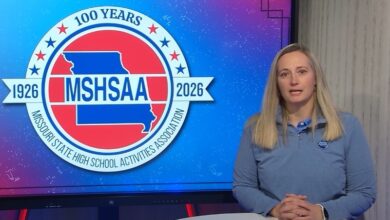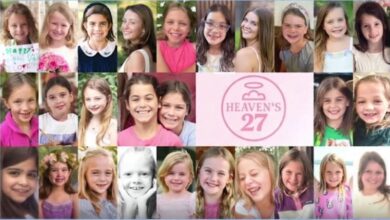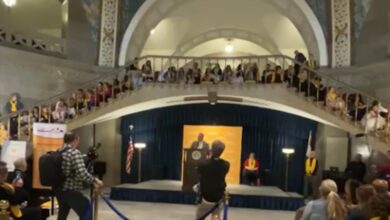Missouri Launches Statewide Church Security Task Force
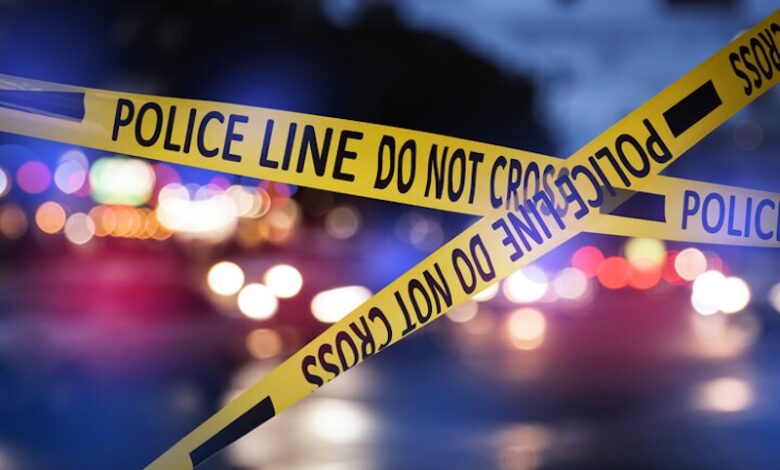
Missouri now has a statewide task force to study and recommend safety and security changes for churches, synagogues, and other nonprofit groups. Gov. Mike Kehoe signed the legislation into law this week. The state becomes one of the few in the nation to have such a partnership.
The new law is part of a bill to offer free college tuition to Missouri’s first responders and their dependent children. The task force will study threats facing nonprofit organizations, recommend best practices in security and explore how the state can support nonprofits that serve vulnerable populations across Missouri. It will bring together leaders from law enforcement, emergency management, homeland security and the nonprofit community to develop actionable strategies for enhancing safety.
Churches, however, remain one of the safest places in the nation when it comes to violence. Church shootings are rare with retail outlets, nightclubs and even schools. Some have questioned the focus on churches when schools and the average workplace offer a much greater risk.
Yet, the legislation is in response to growing public sentiment, which is often driven by headlines.
Annual Homicides by Location Type (U.S.)
| Location Type | Estimated Annual Homicides | Notes |
|---|---|---|
| Retail Locations | 250–300+ | Includes robberies and disputes in convenience stores, gas stations, etc. |
| Workplaces (non-retail) | 400 | Includes offices, factories, government facilities |
| Public Schools | 20–40 | Includes K-12 and higher education institutions |
| Bars/Nightclubs | 100–150 | Often related to alcohol and late-night disputes |
| Houses of Worship | 5–15 | Churches, synagogues, and mosques combined |
Data above on all crimes provided by FBI statistics. See below for info.
“We are incredibly grateful to Missouri’s legislators and Gov. Kehoe for enacting this important part of a broad public safety agenda,” said Jordan Kadosh, the Anti-Defamation Heartland regional director. “This taskforce will help ensure that all Missourians can work and pray safely, and that nonprofits can fulfill their mission in safety and security.”
The bill’s primary objective is to address the security needs of nonprofits that may be at heightened risk of terrorist attacks. With the establishment of this taskforce under the Department of Public Safety’s Office of Homeland Security, the legislation aims to provide a structured approach to enhancing security measures for these organizations. Key provisions include recommendations for federal nonprofit security grants, which would cover essential areas such as security personnel, training and facility hardening. Additionally, the taskforce will focus on outreach and education, particularly for first-time grant applicants, ensuring that nonprofits are well-equipped to navigate the application process.
According to the ADL, Missouri experienced a 250 percent increase in annual antisemitic incidents from 2021 to 2023, in addition to bomb threats, harassment campaigns and acts of hate. Kadosh has led ADL Heartland’s advocacy efforts in support of the Missouri Task Force on Nonprofit Security for months, submitting public testimony, meeting directly with lawmakers, and organizing a statewide lobby day with Jewish community leaders.
“We appreciate the support we received from our community partners in this effort. We showed up together,” he said. “Our representatives heard us, and they acted.”
As of now, Kansas does not have a state-level task force specifically dedicated to church safety. However, Kansas law enforcement agencies and the Kansas Bureau of Investigation (KBI) have provided resources and guidance to churches regarding security planning and emergency response. There have also been local workshops and regional initiatives—often organized by sheriffs’ offices or faith-based organizations—to help churches develop safety plans and prepare for emergencies.
If you’re looking for resources or want to connect with local programs, I recommend reaching out to your county sheriff’s office or the Kansas Bureau of Investigation. They can often direct you to any active initiatives or upcoming trainings in your area.
Across the state line in Kansas, religious institutions don’t have a centralized place for similar resources and assistance. Kansas law enforcement agencies and the Kansas Bureau of Investigation provide resources and gidance on a per case basis and also organize workshops and regional initiatives. These efforts are typically organized and funded by local sheriff offices.
–Dwight Widaman
Primary Data Sources
-
FBI Active Shooter Incidents Report
-
Includes breakdowns of incident locations—such as houses of worship vs. schools, workplaces, retail, etc.—and casualty counts.
-
2022 report: notes two active-shooter incidents at places of worship (resulting in 4 killed, 5 wounded) Bureau of Labor Statistics+9Wikipedia+9Wikipedia+9Wikipedia+8Federal Bureau of Investigation+8Federal Bureau of Investigation+8.
-
2023 report: breaks down by location category (including houses of worship) and overall trends Federal Bureau of Investigation.
-
-
Bureau of Justice Statistics (BJS) & Bureau of Labor Statistics (BLS)
-
BJS covers workplace homicides, with around 700–900 per year in the 1990s, and current stats via annual CFOI data.
-
PDF: “Violence in the Workplace, 1993–99” (≈ 900 workplace homicides/year) Bureau of Justice Statistics+1Wikipedia+1.
-
-
BLS CFOI shows for 2023: 458 workplace homicides, comprising 61.9% of violent work‑related fatalities Federal Bureau of Investigation+8OSHA+8Bureau of Labor Statistics+8.
-
-
Supplementary Homicide Reports (SHR) via FBI’s UCR program
-
The best source for location-specific homicide data (e.g., in retail, schools, places of worship).
-
Full dataset is downloadable from the FBI Crime Data Explorer—“Summary Reporting System (SRS)” and “Supplementary Homicide Reports” ncsbi.gov+2Wikipedia+2Wikipedia+2ncsbi.gov+2CDE UCR CJIS+2Wikipedia+2.
-





